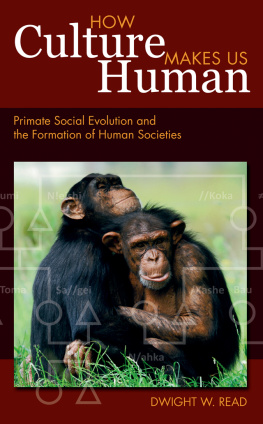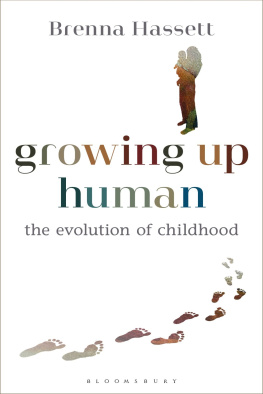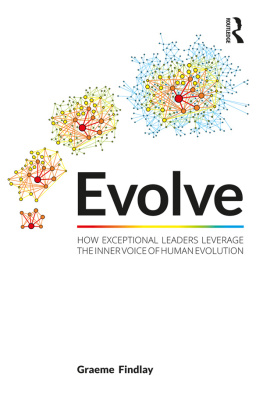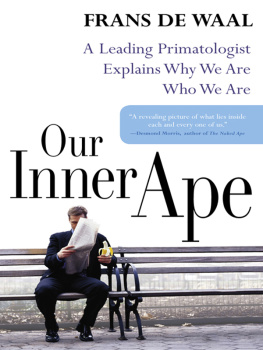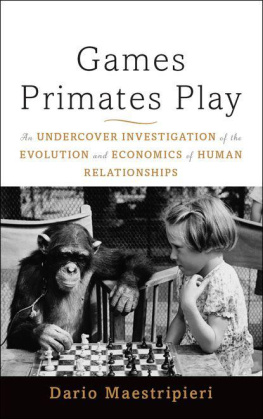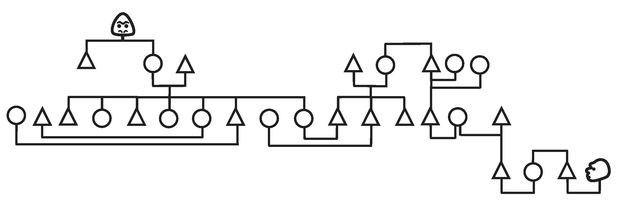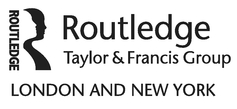How Culture Makes Us Human
How Culture Makes Us Human
Key Questions in Anthropology: Little Books on Big Ideas
Series Editor: H. Russell Bernard
Key Questions in Anthropology are small books on large topics. Each of the distinguished authors summarizes one of the key debates in the field briefly, comprehensively, and in a style accessible to college undergraduates. Anthropologys enduring questions and perennial debates are addressed here in a fashion that is both authoritative and conducive to fostering class debate, research, and writing.
Proposals for books in the series should be addressed to ufruss@ ufl.edu. Series Editor H. Russell Bernard (emeritus, University of Florida) has been editor of the journals American Anthropologist, Human Organization, and Field Methods, and of the series Frontiers of Anthropology. He is author of the leading textbook on field methods and has published extensively in cultural, applied, and linguistic anthropology. He is recipient of the prestigious AAA Franz Boas Award.
Series Titles
Archaeology Matters: Action Archaeology in the Modern World
Jeremy A. Sabloff
The Origin of Cultures: How Individual Choices Make Cultures Change
W. Penn Handwerker
How Culture Makes Us Human: Primate Social Evolution and the Formation of Human Societies
Dwight W. Read
How Culture Makes Us Human
Primate Social Evolution and the Formation of Human Societies
Dwight W. Read
First published 2012 by Left Coast Press, Inc.
Published 2016 by Routledge
2 Park Square, Milton Park, Abingdon, Oxon OX14 4RN
711 Third Avenue, New York, NY 10017, USA
Routledge is an imprint of the Taylor & Francis Group, an informa business
Copyright 2012 Taylor & Francis
All rights reserved. No part of this book may be reprinted or reproduced or utilised in any form or by any electronic, mechanical, or other means, now known or hereafter invented, including photocopying and recording, or in any information storage or retrieval system, without permission in writing from the publishers.
Notice:
Product or corporate names may be trademarks or registered trademarks, and are used only for identification and explanation without intent to infringe.
Library of Congress Cataloging-in-Publication Data
Read, Dwight W., 1943
How culture makes us human: primate social evolution and the formation of human societies / Dwight W. Read.
p. cm.(Key questions in anthropology: little books on big ideas)
Includes bibliographical references.
ISBN 978-1-59874-588-7 (hardcover : alk. paper)ISBN 978-1-59874-589-4 (pbk. : alk. paper)
1. PrimatesEvolution. 2. Human evolution. 3. Social evolution. I. Title.
QL737.P9R315 2011
616'.02738dc23
2011028973
Cover design by Jane Burton
ISBN 978-1-59874-588-7 hardcover
ISBN 978-1-59874-589-4 paperback
Contents
I am deeply indebted to my wife and colleague, Fadwa, for her constant and heart-felt encouragement. Without her suggestion that I should organize, in book format, the ideas I had been presenting in talks at academic meetings, this book would not have been written.
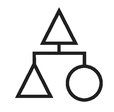
This book has had a long gestation and draws upon my background as both a mathematician and an anthropologist. Mathematics highlights the power of formal modes of reasoning as a way to work out the logical consequences of a series of premises. Anthropology makes evident the importance of culture in human societies, not as a determinant of behavior, but by providing a shared framework or context within which we interact in a mutually understandable manner in accordance with the organization, structure and mode of adaptation constituting the social and cultural system of which we are a part. My long term interest has been to bring these two forms of knowledge together so as to better comprehend the nature, form, evolutionary history and possible future direction of human societies.
Themes in this book have already been presented, in preliminary form, in a number of venues. A key part of my argument relates to the implications derived from the increased complexity of the social field arising from expanded individuality of behavior during the evolutionary history of ourselves and of other primates. This increased complexity has led to major changes in social systems, regardless of whether it is the social field of an individual localized within a troop of Old World monkeys ().
While the extensive behavioral individuality of the great apes has long been recognized, the implications of increased individuality for change in primate social systems based on face-to-face interaction have not been adequately considered. A social field composed of dyads and not just individuals increases exponentially in complexity with increased individuality of behavior. However, the implications of an exponential increase in social complexity as a driver for change in the form of social organization in primates from monkeys to the great apes and then humans has not been given sufficient attention. In a talk I gave at the First Annual Conference on Multi-Agent Modeling in the Social Sciences (held at Lake Arrowhead, California, in 2002 and organized by the UCLA Center for Human Complex Systems) titled The Emergence of Order from Disorder as a Form of Self-Organization, I discussed the implications that increased behavioral individuality has for social complexity and how this relates to the transition from non-human primate to human forms of social organization. The talk was subsequently published in the journal Computational & Mathematical Organization Theory (Read 2004).
I explored the role of culture for change in the organization of human societies, as one goes from band level to state systems, in an invited Plenary Talk for the Second International Conference on Complex Systems (Nashua, New Hampshire, held under the auspices of the New England Complex Systems Institute in 2002). The talk, titled The Role of Culture in the Emergence of Complex Societies, explored the interplay between culture in the form of a conceptual system of kinship relations and change in social organization, a theme taken up in .
The increased complexity of the social field arising from increased individuality in behavior relates more broadly to the evolutionary trajectory going from systems of social organization based on face-to-face interaction to the relational basis for interaction that characterizes human societies. This transition involved more than just the elaboration of pre-adaptations and/or cognitive and behavioral capacities that were already present in an ancestral primate species, but centered especially on the evolution of cultural systems, and hence related directly to what we mean by cultural evolution. This theme was presented as a two-part seminar titled On the Origin and Evolution of Culture given at the Center for the Study of Evolution and the Origin of Life (UCLA) in 2003 and 2004.

